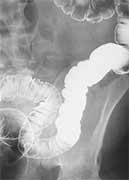Identifies conventional adenomas 6 mm+ with 88 percent sensitivity, 82 percent specificity
TUESDAY, April 28, 2015 (HealthDay News) — In an average-risk screening population, capsule colonoscopy seems adequate for patients who cannot undergo colonoscopy or who had incomplete colonoscopies, although additional research is needed to improve capsule detection, according to a study published in the May issue of Gastroenterology.
Douglas K. Rex, M.D., from Indiana University Hospital in Indianapolis, and colleagues examined the accuracy of capsule colonoscopy technology in detecting polyps 6 mm or larger. A total of 884 asymptomatic subjects from an average-risk screening population underwent capsule colonoscopy followed by conventional colonoscopy several weeks later at 10 centers in the United States and six centers in Israel. Subjects found to have lesions 6 mm or larger by capsule but not conventional colonoscopy underwent unblinded colonoscopy.
The researchers included 79 percent of participants in the analysis of capsule performance. Capsule colonoscopy had sensitivity and specificity of 81 and 93 percent, respectively, for identifying subjects with one or more polyps 6 mm or larger, and of 80 and 97 percent, respectively, for identifying polyps 10 mm or larger. Sensitivity and specificity were 88 and 82 percent, respectively, for conventional adenomas 6 mm or larger, and 92 and 95 percent, respectively, for conventional adenomas 10 mm or larger. Twenty-six and 37 percent of false-negative findings from capsule analyses were attributed to sessile serrated polyps and hyperplastic polyps, respectively.
“In an average-risk screening population, technically adequate capsule colonoscopy identified individuals with one or more conventional adenomas 6 mm or larger with 88 percent sensitivity and 82 percent specificity,” the authors write. “Capsule performance seems adequate for patients who cannot undergo colonoscopy or who had incomplete colonoscopies. Additional study of the capsule, including efforts to improve the detection of serrated lesions, appears warranted.”
Several authors disclosed financial ties to Given Imaging, which manufactures the capsule colonoscopy used in the study and funded the research.
Copyright © 2015 HealthDay. All rights reserved.








